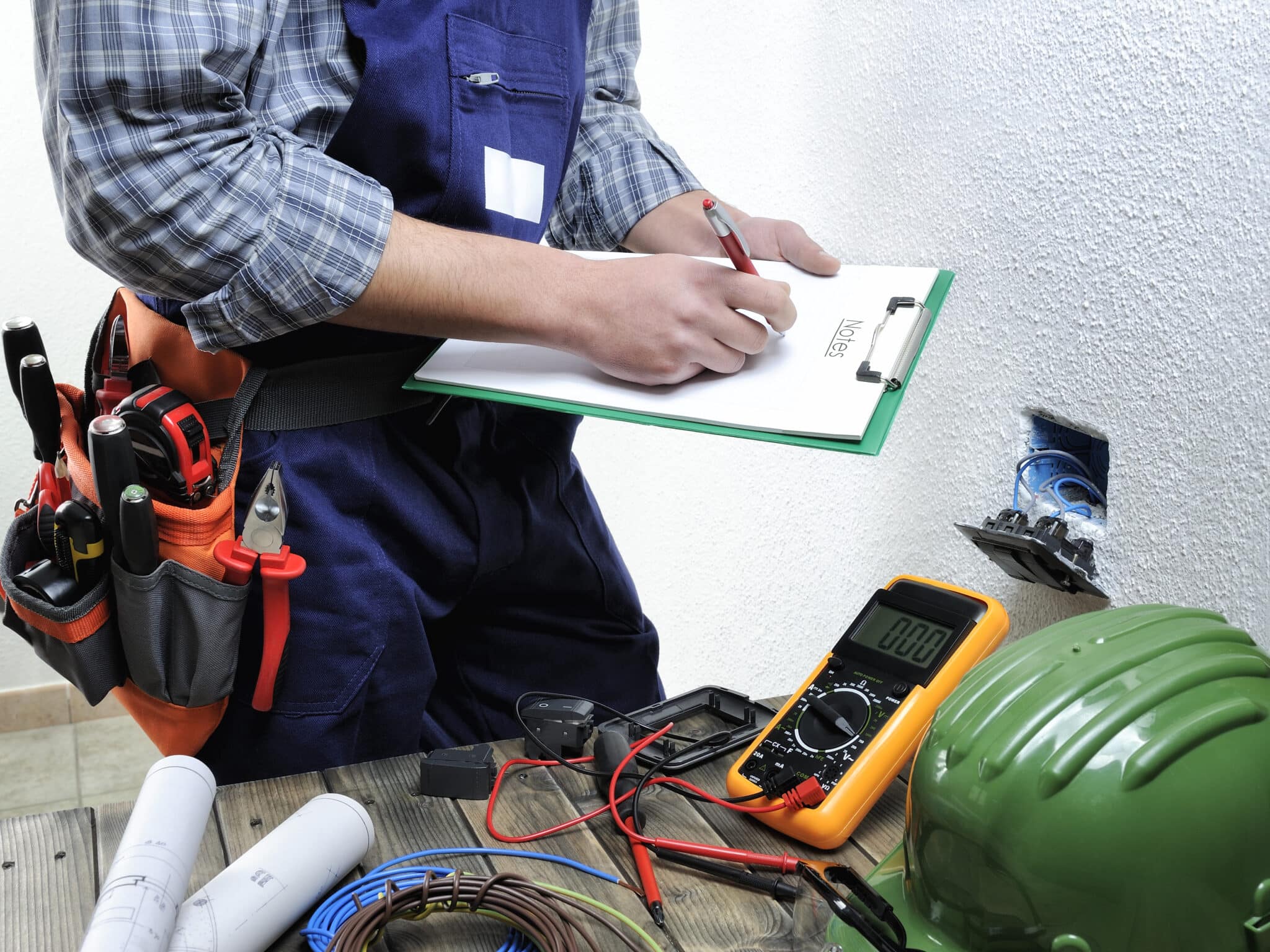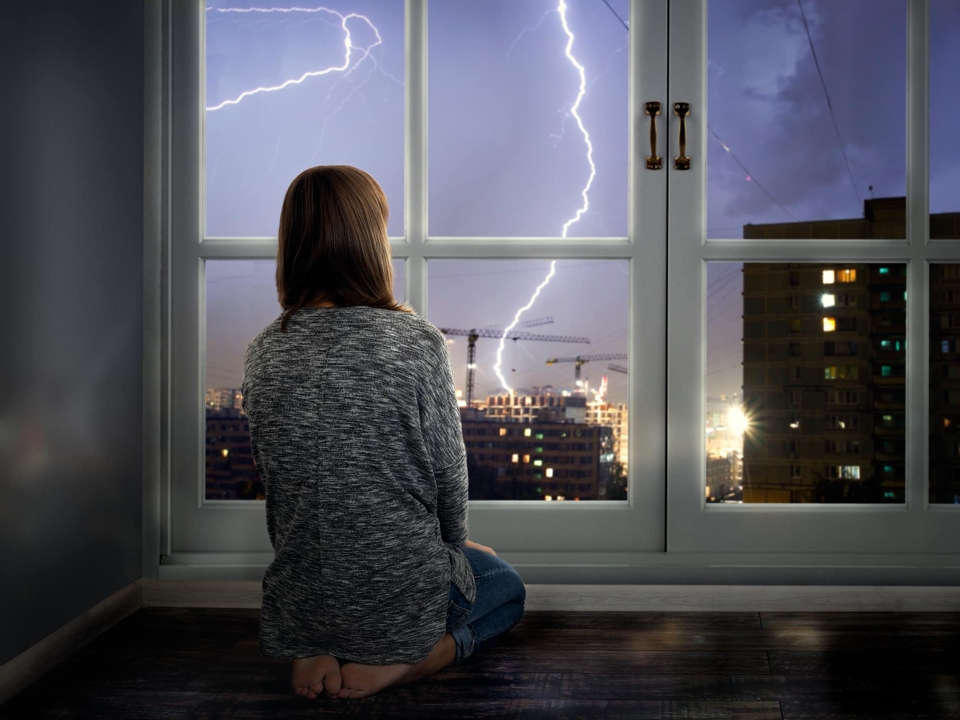Electrical Safety Tips : Winter increases the use of electrical devices like space heaters and holiday lights, raising the risk of electrical hazards. To stay safe, follow these essential electrical safety tips:
- Inspect Heating Devices: Check cords and plugs for damage before use.
- Avoid Overloading Outlets: Distribute devices across multiple outlets.
- Use Outdoor-Rated Cords: Ensure outdoor lights use weather-resistant cords.
- Turn Off Lights When Unused: Use timers to safely manage holiday lighting.
- Install GFCIs: Add Ground Fault Circuit Interrupters in wet areas.
Regular inspections and safe usage help prevent accidents and keep your home safe.

Are you ready for winter? As the weather gets colder, we all start using more heaters, lights, and other electrical gadgets to stay warm and festive.
But did you know that these can lead to unexpected electrical hazards if not used safely? From overloaded circuits to faulty heaters, wintertime can bring a lot of risks to your home’s electrical system.
Don’t worry, though! With a few simple electrical safety tips, you can keep your home safe and cozy all season long. Let’s dive into what you need to know!
Understanding Winter Electrical Hazards
Winter introduces unique challenges when it comes to electrical safety. As we rely more on heaters, lights, and other electrical devices, it’s important to be aware of the potential risks that come with them. Here are some common winter electrical hazards to keep in mind:
Increased Use of Heating Devices
When the temperature drops, space heaters, electric blankets, and other heating devices become your go-to solutions for staying warm. However, using these devices more often increases the chances of overheating and electrical fires.
Always inspect your heating devices for any damage before plugging them in, and ensure that cords are not frayed or damaged.
It’s also crucial to keep these devices away from flammable materials, like curtains or bedding. Never leave them on when you’re not in the room or while you’re asleep.
Overloading Electrical Circuits
During the holidays, it’s easy to get carried away with lights, decorations, and extra kitchen gadgets. Plugging too many items into a single outlet can overload circuits, causing breakers to trip or, worse, start a fire.
Spread your electrical devices across different outlets and avoid using extension cords with high-wattage appliances.
Remember, it’s better to use multiple outlets than risk overloading one. If you’re ever unsure, consult with a professional to ensure your home’s electrical system can handle the load.
Moisture and Electrical Systems
Winter weather can bring rain, snow, and ice, which can be dangerous for electrical systems, especially if moisture gets into your outlets or wiring. Water and electricity don’t mix; moisture can cause short circuits, damage, or even electrical shock.
Make sure outdoor outlets are weatherproof and all cords are rated for outdoor use. Indoors, avoid using electrical devices near water sources, like sinks or bathtubs. Keeping your electrical equipment dry and well-maintained is key to preventing accidents.
Essential Winter Electrical Safety Tips
Staying safe during winter doesn’t have to be complicated. By following some simple electrical safety tips, you can prevent hazards and keep your home running smoothly.
From inspecting your heating devices to using electrical outlets wisely, these tips will help you maintain a safe environment in your home during the colder months. Let’s dive into the essential electrical safety tips you should know this winter:
Inspect Heating Devices Before Use
Before turning on your heaters or electric blankets, it’s important to inspect them for any signs of damage. Look for frayed cords, broken plugs, or any unusual smells when you plug them in. If anything seems off, it’s better to replace the device rather than risk using it.
A quick check can save you from potential electrical fires or malfunctions. Always ensure your heating devices are clean and in good working condition before use—this is one of the simplest yet most effective electrical safety tips you can follow.
Avoid Overloading Outlets
We all have that one outlet that seems to power everything, but overloading outlets can be a big fire risk. Avoid plugging too many devices into a single outlet, especially high-wattage items like space heaters and microwaves.
Use power strips with built-in surge protectors if you need more plugs, but even then, don’t go overboard. Spread your devices across multiple outlets and circuits.
These simple electrical safety tips can help prevent overheating and reduce the risk of electrical fires, keeping your home safe and your holiday spirits bright.
Use Space Heaters Safely
Space heaters are great for adding extra warmth to a room, but they need to be used with caution. Always place space heaters on a flat, stable surface, away from anything that can catch fire, like curtains, rugs, or furniture.
Keep them out of high-traffic areas where they might get knocked over, and never leave them unattended. Make sure your space heater has an automatic shut-off feature in case it tips over. Following these electrical safety tips can help you use your space heater safely and effectively throughout the winter.
Keep Electrical Devices Away from Water
It sounds like common sense, but keeping electrical devices away from water is especially important during winter. Water and electricity are a dangerous mix, so avoid using electrical devices in damp areas or near sinks, tubs, and other water sources.
If you’re using outdoor lights or tools, make sure they’re rated for outdoor use and keep them dry. Indoors, make sure your hands are dry before plugging in or unplugging devices. These electrical safety tips may seem basic, but it’s a critical step in preventing serious accidents.
Install Ground Fault Circuit Interrupters (GFCIs)
Ground Fault Circuit Interrupters, or GFCIs, are a great safety feature for preventing electrical shocks, especially in areas where water and electricity might meet, like bathrooms, kitchens, and outdoor outlets.
GFCIs detect imbalances in electrical flow and shut off power if there’s a risk of shock. If your home doesn’t already have GFCIs in key areas, consider installing them or having a professional do it for you.
It’s a small upgrade that can make a big difference in your home’s safety, making it one of the top electrical safety tips for winter.
Safe Use of Holiday Decorations
The holiday season brings joy and a lot of decorations! While setting up lights and decorations is fun, it’s essential to keep electrical safety tips in mind to avoid any accidents. Here are some ways to safely use your holiday decorations this winter:
Check Lights and Cords for Damage
Before hanging up your holiday lights, take a few minutes to inspect all cords, plugs, and bulbs for any signs of damage. Look out for frayed wires, broken bulbs, or exposed metal, which can be a fire hazard.
If you find anything that looks unsafe, replace the item instead of trying to fix it yourself. Damaged lights can cause shorts or sparks, leading to dangerous situations.
Taking the time to inspect your lights is a simple but effective electrical safety tip that can keep your holiday bright and safe.
Use Outdoor-Rated Extension Cords
If you’re decorating the outside of your home, it’s important to use extension cords that are specifically rated for outdoor use. Indoor extension cords aren’t designed to handle moisture or temperature changes, which can lead to shorts or fires.
Outdoor-rated cords are built to withstand these conditions and keep your decorations safe. Make sure all connections are secure and away from water sources like puddles or snow. This is one of those electrical safety tips that might seem minor, but it can prevent big problems.
Turn Off Lights When Not in Use
While it’s tempting to leave your holiday lights on all night, it’s safer to turn them off when you’re not home or before you go to bed. Not only does this reduce the risk of electrical fires, but it also saves energy and can lower your electricity bill.
Consider using a timer for your lights, so they automatically turn off at a set time. These easy electrical safety tips can provide peace of mind and ensure your decorations are enjoyed safely throughout the season.
Preventing Electrical Fires
Winter is the time when we rely heavily on heating devices, holiday lights, and other electrical appliances, which can increase the risk of electrical fires.
By following some key electrical safety tips, you can reduce these risks and keep your home safe. Let’s look at some practical steps for preventing electrical fires:
Regularly Test Smoke Alarms
Smoke alarms are your first line of defense against fires, so it’s crucial to make sure they’re working properly. Follow these electrical safety tips to ensure your smoke alarms are always ready to protect your home:
- Test monthly: Press the test button on your smoke alarms every month to make sure they sound correctly. A quick monthly test can be the difference between early warning and disaster.
- Change batteries yearly: Replace the batteries at least once a year, or whenever you hear the low battery warning chirp. Don’t ignore that sound—it’s a reminder to keep your alarm functioning properly.
- Clean regularly: Dust and debris can interfere with your smoke alarm’s sensors, so clean your smoke alarms regularly. A gentle wipe or a quick vacuum can keep them working at their best.
By staying on top of these simple steps, you’ll ensure your smoke alarms are in top condition, providing reliable protection and peace of mind in case of an emergency.
Keep Flammable Items Away from Electrical Sources
Keeping flammable items, like curtains, paper, and furniture, away from heaters, lights, and other electrical sources is a simple but essential step to prevent fires. Follow these electrical safety tips to keep your home safe:
- Maintain clear space: Ensure space heaters have at least three feet of clearance on all sides to prevent nearby objects from catching fire.
- Position decorations wisely: Keep holiday decorations, like garlands and trees, away from light bulbs and electrical outlets to avoid overheating or sparks.
- Organize cords safely: Make sure cords are not covered by rugs or placed near flammable items, as this can cause heat buildup and lead to fires.
These precautions can significantly reduce the risk of fire in your home. By following these easy electrical safety tips, you’ll create a safer environment for your family throughout the winter season.
What to Do in Case of an Electrical Emergency
Even with the best electrical safety tips in place, emergencies can still happen. Knowing what to do during an electrical emergency can make all the difference in keeping you and your family safe. Here’s what you need to know:
Handling Electrical Fires
If an electrical fire starts, the most important thing to remember is to never use water to try and put it out—this can make the situation worse. Instead, use a fire extinguisher rated for electrical fires, often labeled as Class C.
If you don’t have one, immediately unplug the device if it’s safe to do so, and turn off the power from your circuit breaker. Evacuate your home and call 911 if the fire is too large to handle on your own. These electrical safety tips are crucial in managing an electrical fire safely.
When to Call a Professional
Not all electrical issues require an emergency response, but it’s important to know when to call a professional. If you experience frequent circuit breaker trips, flickering lights, or buzzing sounds from outlets, it’s time to get an electrician involved.
These signs could indicate serious underlying problems that need professional attention. It’s better to be safe and get an expert’s opinion rather than risk potential hazards. Following these electrical safety tips can help you know when it’s time to call in the pros.

The Importance of Professional Electrical Inspections
Regular electrical inspections are one of the best electrical safety tips you can follow, especially during the winter months when your electrical system is under more stress.
A professional inspection can catch potential issues early, saving you from costly repairs or dangerous situations. Here’s why scheduling a winter electrical check-up is so important:
Why You Should Schedule a Winter Electrical Check-Up
Winter puts a lot of extra demand on your home’s electrical system, with heating devices, holiday decorations, and more frequent use of appliances.
A professional check-up can identify worn-out wires, faulty outlets, or overloaded circuits that you might not notice. By addressing these issues before they become serious, you can ensure your home stays safe all season long.
These proactive electrical safety tips can help you avoid unexpected problems and keep your home running smoothly.
How to Choose a Qualified Electrician
Choosing the right electrician is crucial for ensuring a thorough and safe inspection. Look for professional with good reviews or recommendations from friends and neighbors.
Don’t be afraid to ask questions about their experience with winter electrical issues and what their inspection will cover. A qualified electrician will provide you with peace of mind, knowing that your home is in good hands. Remember, following these electrical safety tips includes selecting the right professional to keep your home safe.
Common Winter Electrical Issues Detected During Inspections
During a winter inspection, electricians often find issues like outdated wiring, faulty circuit breakers, or improperly installed outlets—all of which can pose significant risks.
They might also check for signs of moisture damage or wear and tear from increased usage. Identifying these problems early means they can be fixed before they escalate into emergencies.
Incorporating these electrical safety tips into your routine maintenance will help keep your home safe and your electrical system reliable.
Keep Your Home Safe This Winter with Gardner Electrical!
Don’t wait until it’s too late! Ensure your home is ready for the winter season with professional electrical inspections and expert advice from Gardner Electrical.
Serving Terrell, TX, Canton, TX, Mabank, TX, and surrounding areas, our team is here to help you stay safe and worry-free all winter long. Contact Gardner Electrical today to schedule your inspection and keep your home protected!
FAQs
What are the most common electrical hazards in winter?
Common winter electrical hazards include overloaded circuits from extra holiday lights and heating devices, using damaged or outdated equipment, and moisture exposure to electrical outlets or cords. These issues can lead to fires or electrical shocks if not properly managed.
How can I prevent overloading circuits during the holidays?
To prevent overloading circuits, spread your decorations and appliances across multiple outlets, and avoid plugging too many high-wattage devices into one outlet. Using power strips with surge protectors can help, but make sure not to exceed their capacity.
What should I do if my space heater smells like it’s burning?
If your space heater smells like it’s burning, turn it off immediately and unplug it. Check for any visible signs of damage or debris that might be causing the smell. If the issue persists, stop using the heater and replace it with a new one to avoid potential fire hazards.
Why is it important to keep electrical devices away from water?
Water and electricity don’t mix—moisture can cause short circuits, electrical shocks, or even fires. Always keep electrical devices and cords dry, and avoid using them near sinks, tubs, or outdoors in wet conditions.
How often should I have a professional electrical inspection?
It’s recommended to have a professional electrical inspection at least once every few years, and definitely before winter when your electrical load increases. Regular inspections help identify and fix issues early, ensuring your home remains safe.
The post Winter Electrical Safety Tips appeared first on Gardner Electrical.






